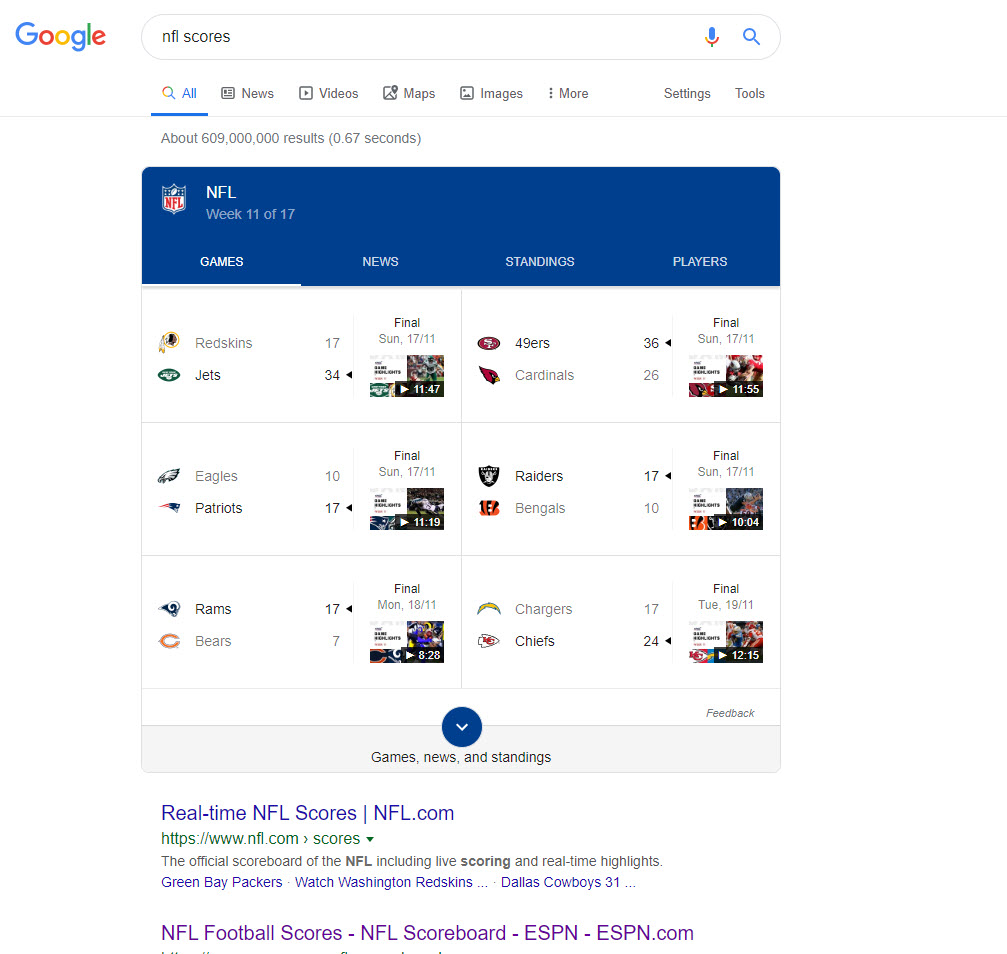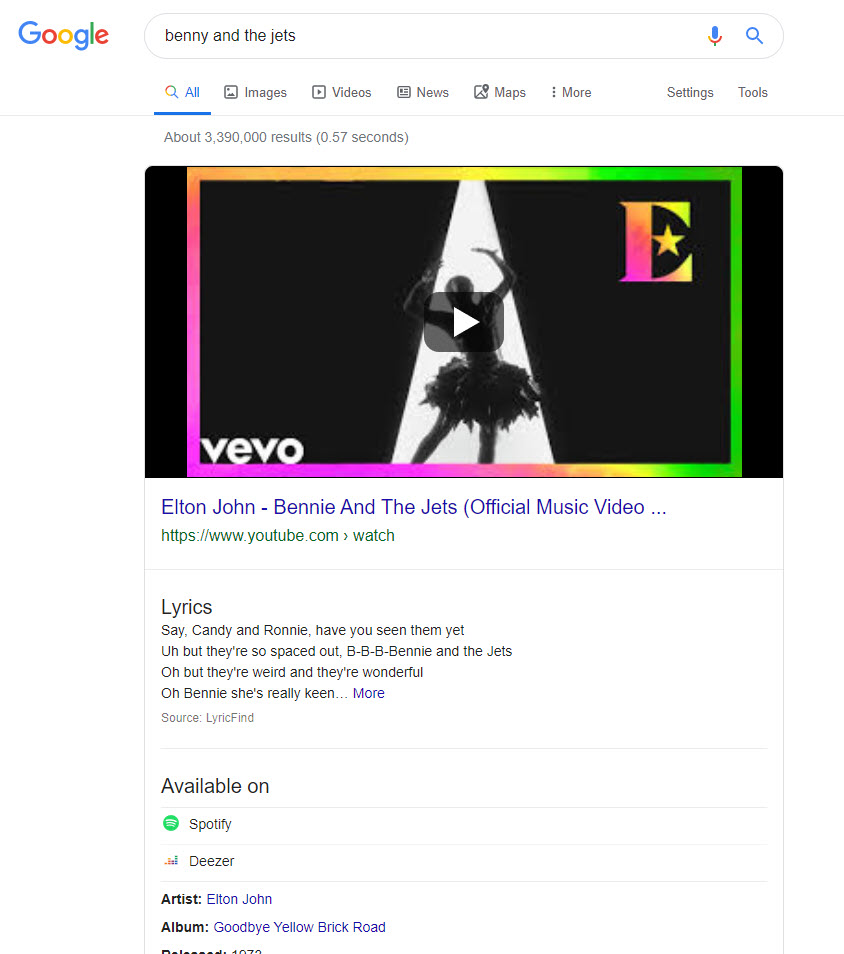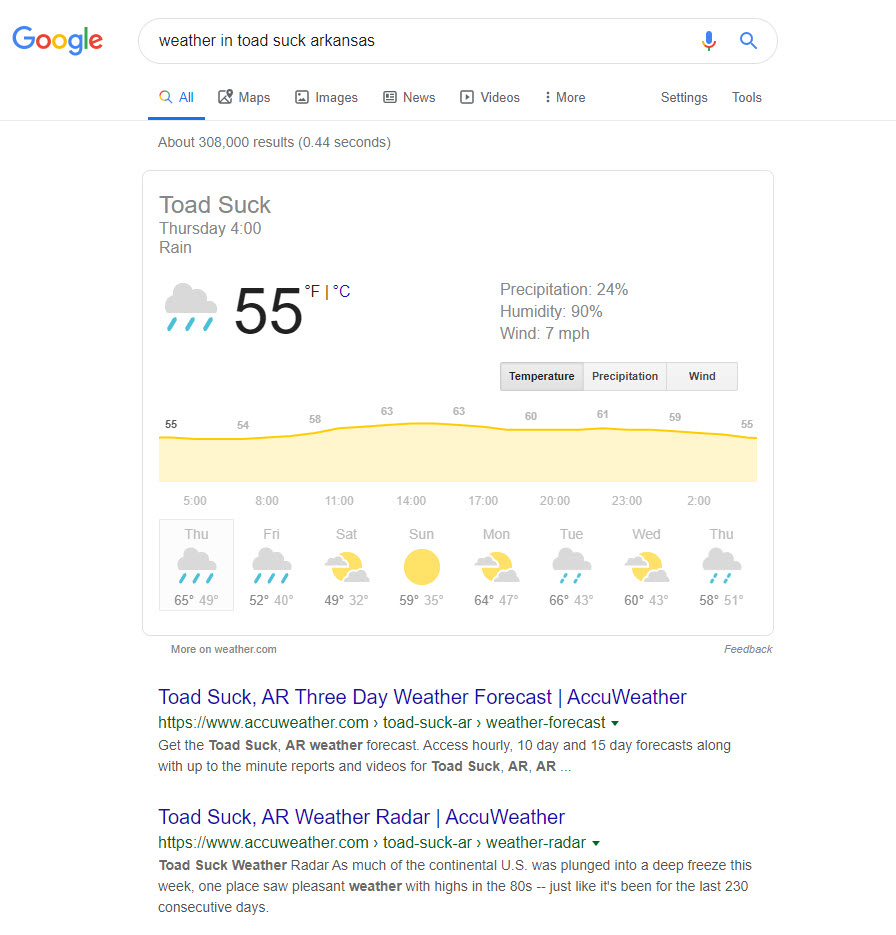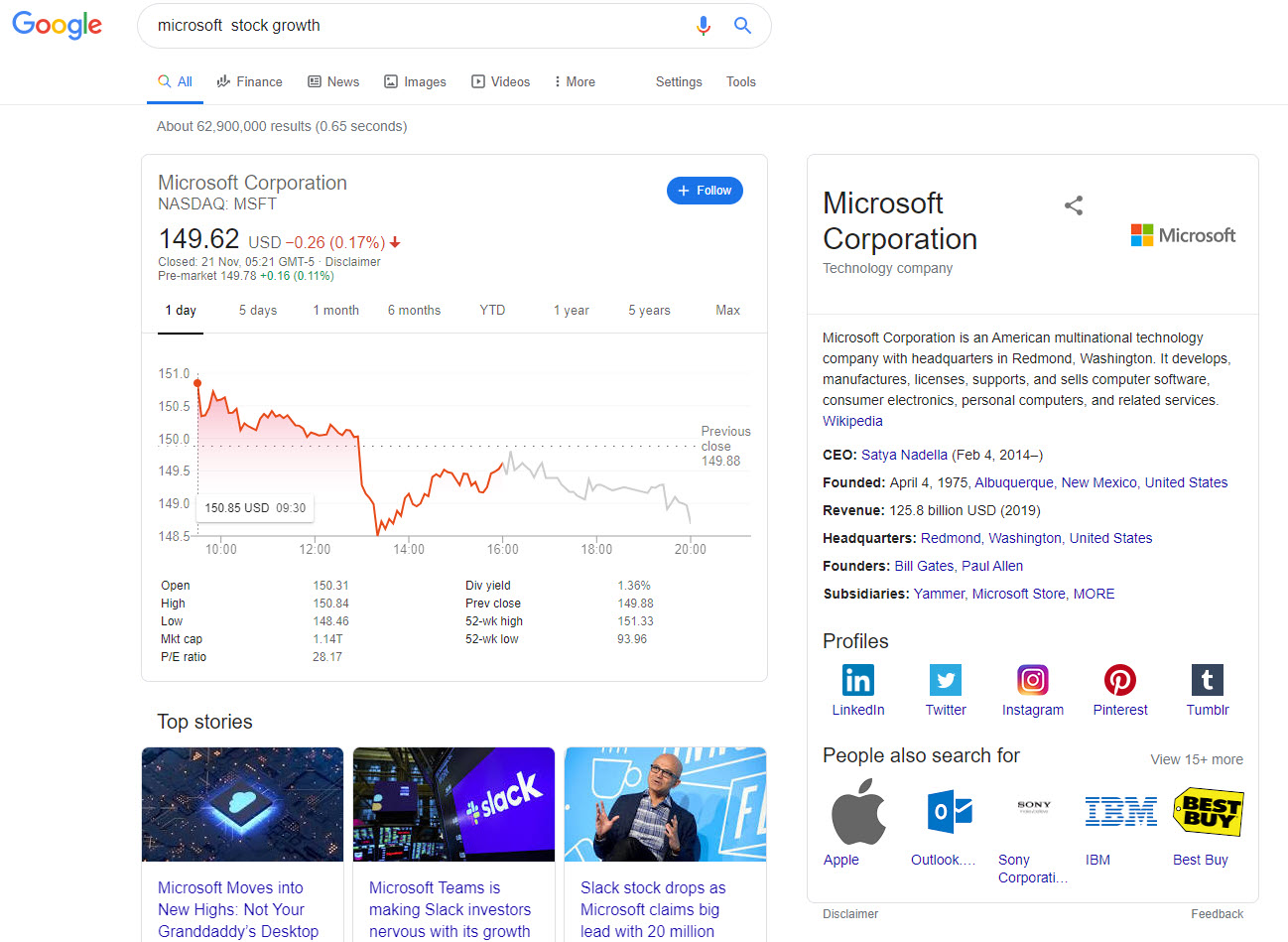Posted by
Mordy Oberstein
It’s obvious, Google is no longer a search engine. Rather, Google is all about offering answers and guiding users on their search journey. That’s why Google has evolved into an “answer” or “discovery” engine, right?
Wrong.
I used to think the same thing. Until I realized Google isn’t an answer engine, it’s not a discovery engine… or any other catchphrase that focuses on Google offering content directly to the user and discouraging clicks.
For Google, it’s all about “authority.”
Here’s why Google is, in reality, an authority engine & why getting this right actually matters!
The Emergence of Google as an Answer Engine

Before I can explore why I think Google fundamentally is not an ‘answer engine’ it behooves me to explain what we mean by the term ‘answer engine’ and how that identity emerged.
1. SERP Features and the Advent of the Answer
It all started with SERP features. Over the years (the past 3 – 4 years especially), Google has placed a lot of stock in the use of its SERP features (you know, Local Packs, Featured Snippets, Knowledge Panels, etc.).
The surge of the SERP feature meant that all sorts of questions were now being addressed not by organic results, but by the features themselves. Take the Local Knowledge Panel for example. Over the years the feature has received upgrades that lets users (among other things):
- See how busy a store is in real-time
- Book a table at a restaurant
- Evaluate how close a hotel is to top local attractions
- View select products a store offers
Meaning, to do any of the above (and way, way, way more) you don’t need to visit a site. You no longer need to do a search to see what local stores are far too busy for your packed schedule or a search to see what attractions are near a hotel you want to stay at… Google tells you.
In fact, over the years Google has gotten pretty “energetic” about how it uses SERP features to specifically target users and offer them information that is accessed directly on the SERP.
To this, Google has added all sorts of filters to simultaneously target multiple users intents and has even merged multiple features into one hybrid in order to ensure the user is likely to make use of the SERP per se for information in place of a site that ranks organically.
I could spend hours talking about all of the nuances and details involved in this “SERP feature-centric” dynamic, but most of you know all of this already.
The point is, Google has thrown all sorts of content onto the SERP that directly answers the user’s query. Thus, the ‘answer engine’, as in Google being an engine that supplies direct answers, was born.
2. Search as a Journey Arrives
In October of 2018, Google made a leap in how it used the content within SERP features and beyond to act as an answer provider. The most notable change, in terms of SERP features, was the advent of the Topic Layer. The Topic Layer allowed Google to start showing entity-specific information in the forms of tabs with the Knowledge Panel. For example, Google will often show a tab entitled “Grooming” within a mobile Knowledge Panel for a long-haired . breeds with short hair, having no need for grooming get no such tab.
The point is, via the Topic Layer, Google is now offering entity-specific information to its users. The more specific and the more targeted the information that Google can supply via on the SERP content the less need there is for users to visit an actual website.
That said, the Topic Layer’s significance is about a heck of a lot more than just targeted content. The changes Google announced, including the Topic Layer and the Discover Feed hitting Google’s mobile homepage, was part of a larger movement. With these additions to the Search family, Google went about the task of helping to guide the user in a specific direction so as to advance the user towards their overall Search goals and in new directions entirely. Meaning, with elements like the Topic Layer, Google took a hard turn towards trying to influence the Search path users take.
The notion that Google deems itself responsible to help the user not only with their immediate search but with the overall goal of their query quest is groundbreaking. It creates a unique reliance on the part of the user on the search engine. It also demands that the user trust Google to be able to guide their search journey adequately. Simply, it puts Google in the position of delivering in ways far more dynamic than a mere answer within a SERP feature box!
Google actively taking ownership of the user’s ultimate search goal not only makes Google an answer engine but a dynamic one at that! (Though I no longer believe Google is an answer engine, but that’s all to come).
3. The Rise of 0-Click Searches
The culmination of the aforementioned (i.e., everything I just wrote about SERP features and search as a journey) has been the advent of the zero-click search. Rand Fishkin and Jumpshot have famously determined that over 50% of all searches do not result in a click (though, I suspect that number is a bit lower and needs a good amount of qualification). Having read thus far you know why: Google is energetically answering questions via its SERP features and doing so quite specifically with elements such as the Topic Layer. The emergence of the zero-click search has cemented Google’s reputation as an answer engine and not a search engine. The prominence and commonality of clickless searches have altered Google’s identity taking it from being about providing search results to being that of an “answer engine.”
Seems pretty straightforward… pretty simple. Yet, as much I myself bought into this narrative, it’s all wrong and misses the mark in an essential way.
Let’s see why.
Ads Are Not the Answer

Why would Google want to answer the user’s question directly? What’s it got against clicks? Why not let the user head off to a website?
A lot of the sentiment within the SEO community harps on ads. If you ask SEOs (which I did) you may get something that sounds like this:
Google aims at keeping users within its own ecosystem so as to induce the usage of its search ads. Answers keep users coming back for more and with that comes a greater chance of clicking on an ad.
Meaning, Google wants you coming right to the SERP to get answers and to head from one SERP to the next (as engaging with its features often leads to) because it means Google can place more ads on the SERP and have a greater chance of you clicking on one. This, of course, means Google can increase its revenue. The more times you don’t click on a result the more times you will click on an ad.
See, it all makes good sense. Except it doesn’t.
Here are a few queries that are laden with SERP features… Direct Answers, Featured Snippets, Knowledge Panels, and so forth. Have a look and notice what’s missing:
Sample SERP #1

Sample SERP #2

Sample SERP #3

Sample SERP #4

That’s right, ads. There are no ads here. This alone should tell us we need to go a bit more abstract, a bit more meta, to understand Google’s ‘answer engine’ motivations.
At the same time, it’s hard to say that Google wants users to stay on the SERP in the hopes of ad engagement. If the idea is to have the user go to Google for a sports score instead of ESPN how would an ad help? Why would the user even click on an ad when the entire point of the visit is to get a quick and easy answer. Saying Google is going clickless and saying it’s doing so to get more clicks on its ads is a bit circular. Why would the user not click on an organic result but be willing to click on an ad?
You could argue that by offering this experience Google gets users to keep coming back for more searches where clicks are relevant and ads do appear. This though is more aligned to another theory behind Google’s answer obsession. UX.
UX Is Not the Answer Either

If half of the SEO industry thinks that ads are behind Google’s answer extravagance then the other half is on the UX express train. This camp supposes the notion that offering the user direct answers speaks to a better UX. That giving the user information served neatly and expediently is satisfying a certain latent user demand. And I agree. As I talked about when discussing how to handle the rise of zero-click searches, answers on the SERP are the natural evolution of content.
I think their end goals are quick, positive UX and $ hence keeping searchers within the SERPs/their properties. I don’t think those things are necessarily at ****, but they sometimes cannot be satisfied at the same time.
— Jessica Levenson (@guerillagirl) November 18, 2019
It’s as good a theory as any and certainly, one that’s better than the notion that staying stuck on the SERP is a linear equation to more ad clicks. And while I don’t have an argument to debunk it, as I feel I do with ads, something about it leaves me unsatisfied.
Simply, there is something energetic and even aggressive (I don’t mean that in a bad way necessarily) about Google’s preoccupation with offering information directly on the SERP for me to feel comfortable that it’s all about UX. There’s a certain do or die energy, a certain all-in attitude that I don’t feel can be attributed to a more conventional urge such as offering the user the best experience possible so that they return (and click on more ads – because it all does come down to revenue, as it must.)
Google: Alone as the Authority Engine

So if it’s not ads and if UX is not satisfying enough a reason, why has Google gone completely gaga over providing answers on the SERP?
To answer that first consider, what is the single most important thing for a search engine to have? You might say this is accuracy or relevancy but really it’s trust, or the flip side of trust… authority.
You can have the best user experience, the best features, the slickest whatever and none of it matters if users don’t trust you. Just look at Bing. The Bing SERP looks nice and has some great features (some of which Google has “borrowed” themselves). Yet, we don’t use Bing because we don’t trust Bing to provide the best results. And now Bing is facing an uphill battle that it will probably never recover from. Even if Bing made changes and started showing great results, its public trust factor would limit its usage despite its accuracy.
Nothing is more important to Google than trust and authority!
So why does Google give user’s the answers to their queries on the SERP itself? Authority.
If a user searches for weather today and heads off to the Weather Channel’s site, who is the authority on the current temperature outside? (Rhetorical question.) If the same user runs the same query and gets a “Google box” filled with all sorts of weather goodness, who becomes the authority on the temperature outside? (Again, rhetorical question.)
I agree, offering the user answers on the SERP is a great user experience and certainly factors into Google’s calculations. However, the more significant goal, the meta-goal, is to be an unrivaled authority.
Google’s answer obsession is a manifestation of its authority goals. In other words, Google is not serving answers. Rather, Google is serving users with a healthy dosage of authority. As such, it’s important to view Google for what it is, an ‘authority engine’. Everything Google does can be subsumed under its desire to be an unrivaled authority. In this way, Google, unlike other search engines, was very adept and understanding the primary relationship between it and its users.
From a psychological point of view, Google, by offering answers, information, and guidance (i.e., search as a journey) takes on the role of a provider (whereas a pure search engine would be a facilitator). Like any provider, such as parents, there is a substratum of authority that goes along with it. In providing, Google also becomes an authority.
Understand, Google being an authority is what allows all of its properties to live. Google Home and even Google Ads would not be able to function without a prior establishment of the search engine’s authority. Why would I click on an ad when I don’t think the platform serving it is an authority, is trustworthy? At the end of the day, it’s a Google Ad, not an Expedia Ad or an Ebay Ad or any other advertiser’s ad, the ad’s identity comes from its host.
Fundamentally, what keeps users returning to the SERP to see and click on more ads? Authority.
The Season of Schema Renewal Proof: Why Google Has Reaffirmed Its **** for Schema
Over the past few months, ever since Google released FAQ and How-to rich results, there’s been a clear uptick in the search engine’s focus on schema markup. The renewal of focus here, however, was a bit perplexing to me. Why would schema all of the sudden emerge as one the epicenters of the SEO conversation? After all, it’s always been super important and super relevant! Why the sudden re-emphasis?
Authority.
The SERP is a disjointed place from the perspective of Google as an authority engine. On the one hand, you have all sorts of features touting Google’s expertise while on the other hand, you have organic results, which are nothing but segues to information and precursors to authority that is not Google’s (i.e., the site’s own authority).
Thus, the SERP was a bit disjointed from an authority perspective.
What was Google to do? How could it create authority synchronicity on the SERP? Schema.
Schema markup for rich results solves Google’s existential crisis. It places content directly on the SERP that serves to answer (or at least address) the user’s query in a direct manner. If you don’t believe me, look no further than the FAQ and How-to rich results that do exactly that. In fact, these formats have sparked debate about their impact on site traffic which all the more aligns them to Google’s direct answer focus.
You might argue back that the information within a rich result belongs to and is part of the site’s organic result and SERP presence. While that’s not false it’s not true either. Anything that resides on the SERP does not belong to you. It belongs to Google. Hence, Google changes the content you create for the SERP (i.e., meta-descriptions and even titles at times.) Why? Because it does not belong to you.
The enhancements within a rich result, while at times bolstering your traffic and though residing within your organic listing, belong to Google. They are on the Google SERP. They are intended to serve Google’s purposes, not yours. In this case, they serve Google by bridging the gap between the direct answer formatting of the SERP and the organic formatting of the SERP as they introduce direct elements within organic results.
In other words, rich results add more direct elements to the SERP and as a result, build up more authority on Google’s behalf. FAQ information, ratings, etc. all foster the association that information is found via Google on its result pages.
Simply, rich results are an authority factory for Google. It’s a way of keeping sites happy all while furthering its ultimate identity as an authority engine.
Understanding the Animal You’re Dealing With

Google’s an answer engine, it’s a discovery engine, it’s an authority engine. Whatever. Who cares? But it does matter. At a minimum, it takes a bit of the edge off the zero-click search debacle and fosters a bit of understanding of where the search engine is coming from. However, what understanding this concept does is offer the ability to foresee where things are headed and to understand what changes to the SERP are more significant/important than others.
We’re headed in a direction where Google is only willing to share its space with sites when said sites are willing to siphon authority to Google. If I were a ******* man, I would venture to say that many more schema opportunities are coming and that their adoption will be a determining factor when ranking on the SERP. (Note, I am not saying schema is a ranking factor. Rather, I am pointing out that its adoption aligns to what Google prefers to have on the SERP.) While many sites, depending on their vertical, can get away with minimal schema adoption today, I don’t think that will be the case going forward.
Google as an authority engine is going to put a much stronger onus on sites to adopt schema markup… much as it already has with the release of the FAQ and How-to result.
Oh, and you can bet big brands will only see more top ranking spots go to them. Not because Google has a brand bias, but because Google loves borrowing big brand authority for its results page.
Here’s to Google, the authority engine!

